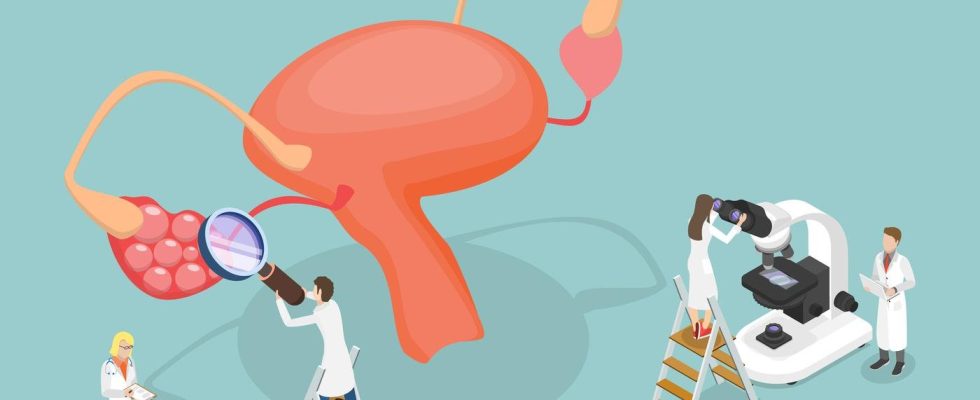A fuzz over the upper lip, stubble on the chin, and heavy hair growth all over the body. Around 10 to 15 percent of women of childbearing age living in Germany know this all too well. “Many of those affected don’t know that they suffer from polycystic ovary syndrome,” says Matthias Möhlig, a specialist in internal medicine, endocrinology and diabetology, who works as a senior physician at the Charité. The condition, abbreviated as PCOS syndrome, is a hormonal disorder.
Symptoms also include overactive sebaceous glands, which cause acne, and a male-like pattern of hair loss. For many sufferers, the disorder also affects their cycle, which is why they have problems getting pregnant. The reason for all this: Women with polycystic ovary syndrome have higher levels of the male sex hormone testosterone in their blood than usual and may also be more sensitive to it.
However, hardly any woman suffers from all of the symptoms mentioned, which also vary in severity and have more or less consequences for those affected. For some women it is primarily the metabolism that is affected, for others the cycle problems predominate.
If a woman has been taking birth control pills since she was a teenager, she suppresses the symptoms of PCOS. The diagnosis is sometimes only made when she stops taking the pill.
Bruno Imthurnendocrinologist

